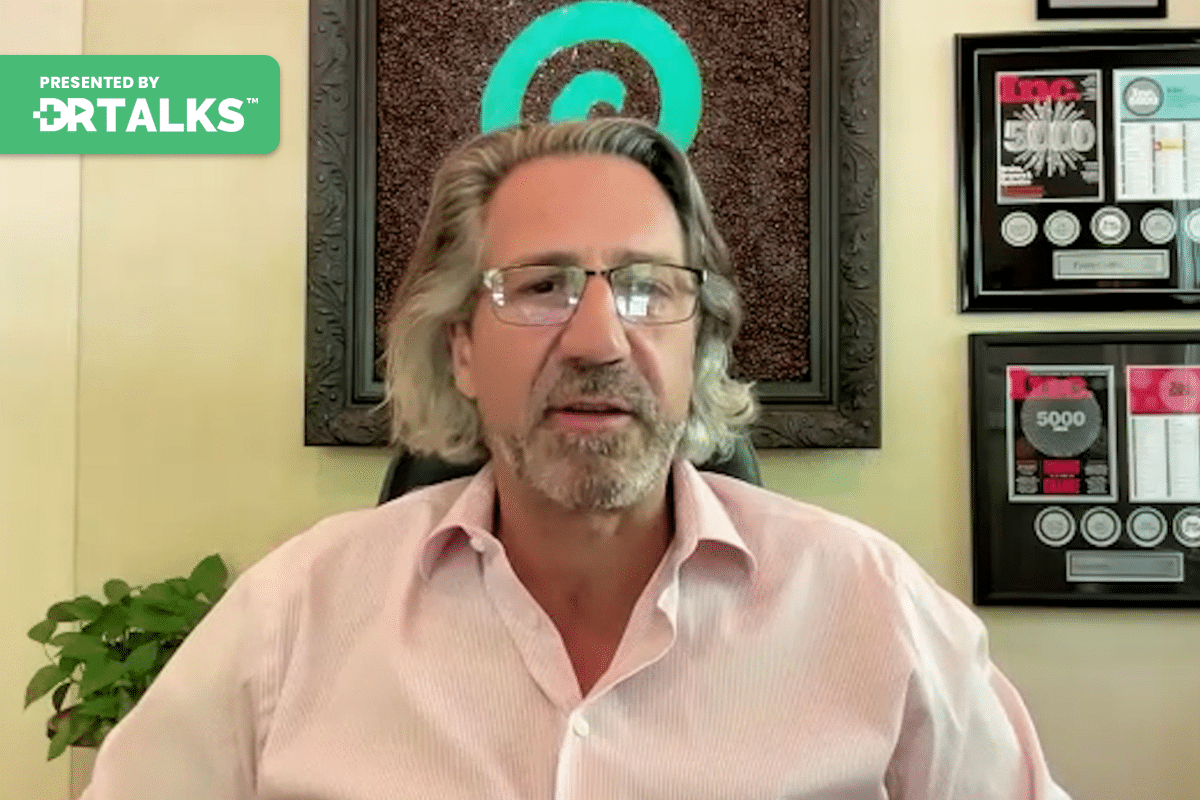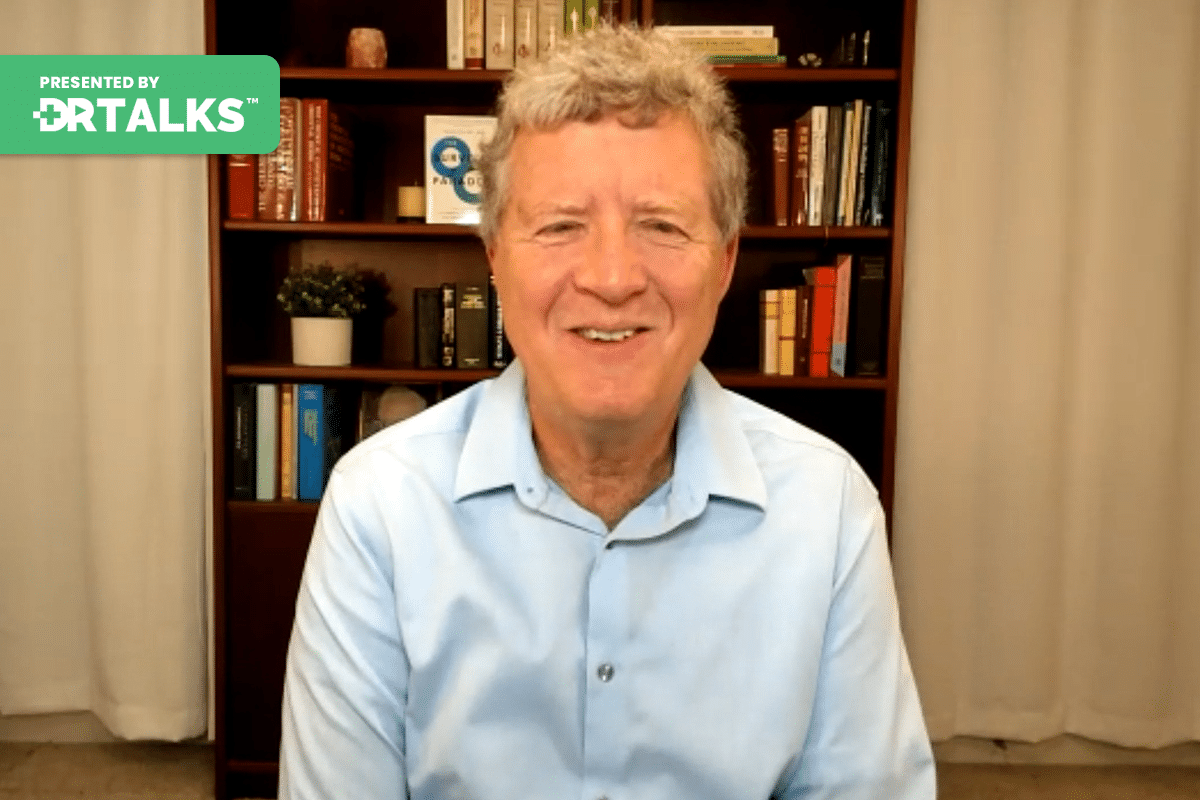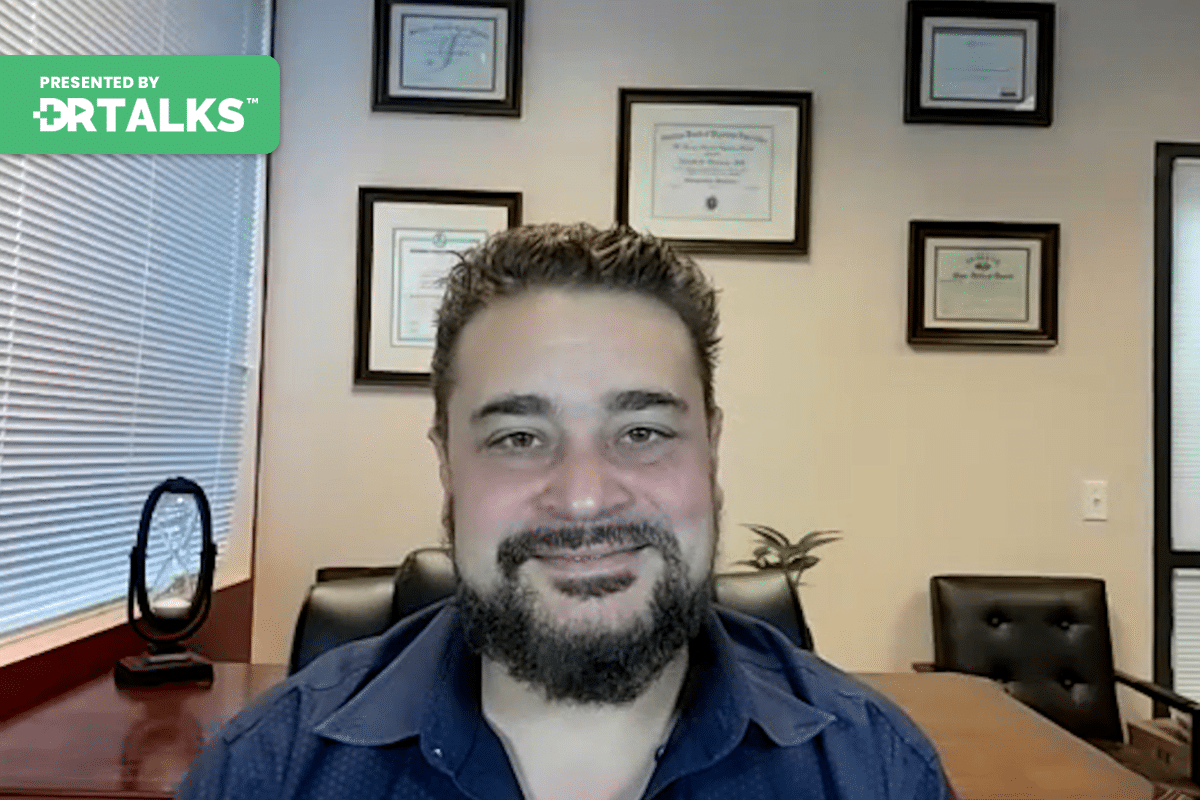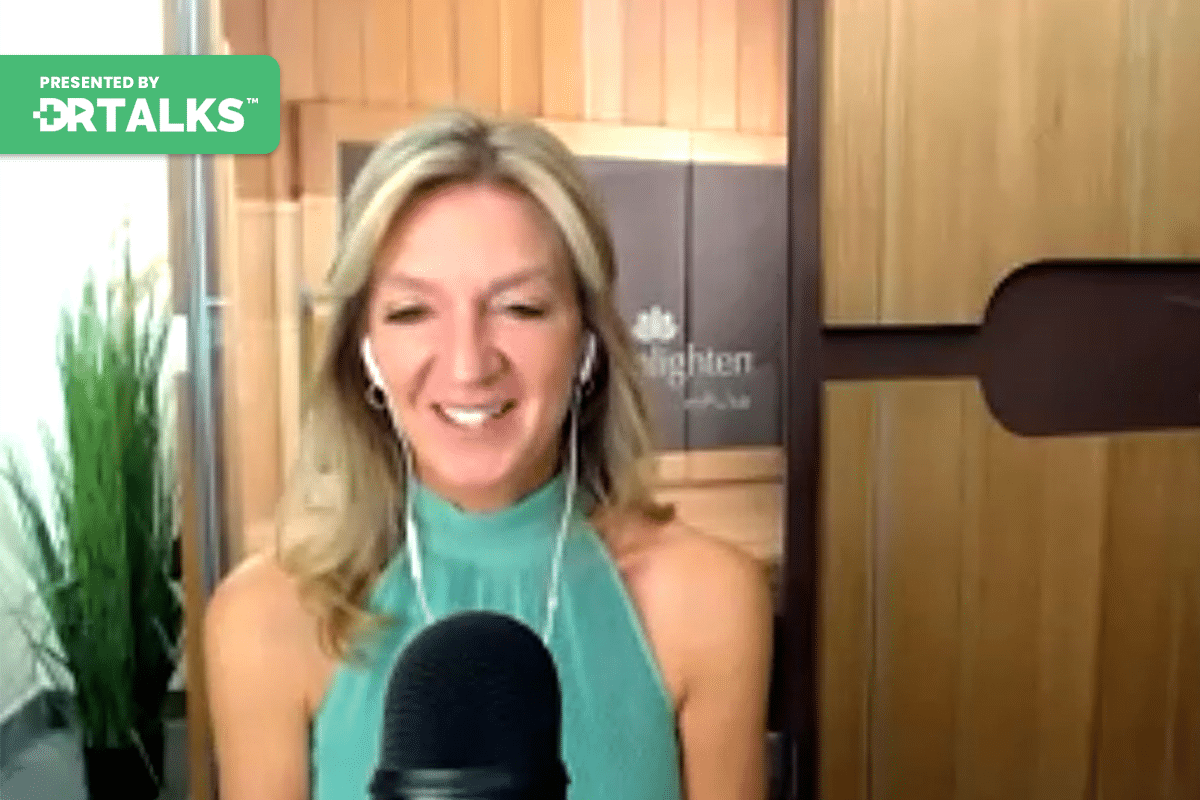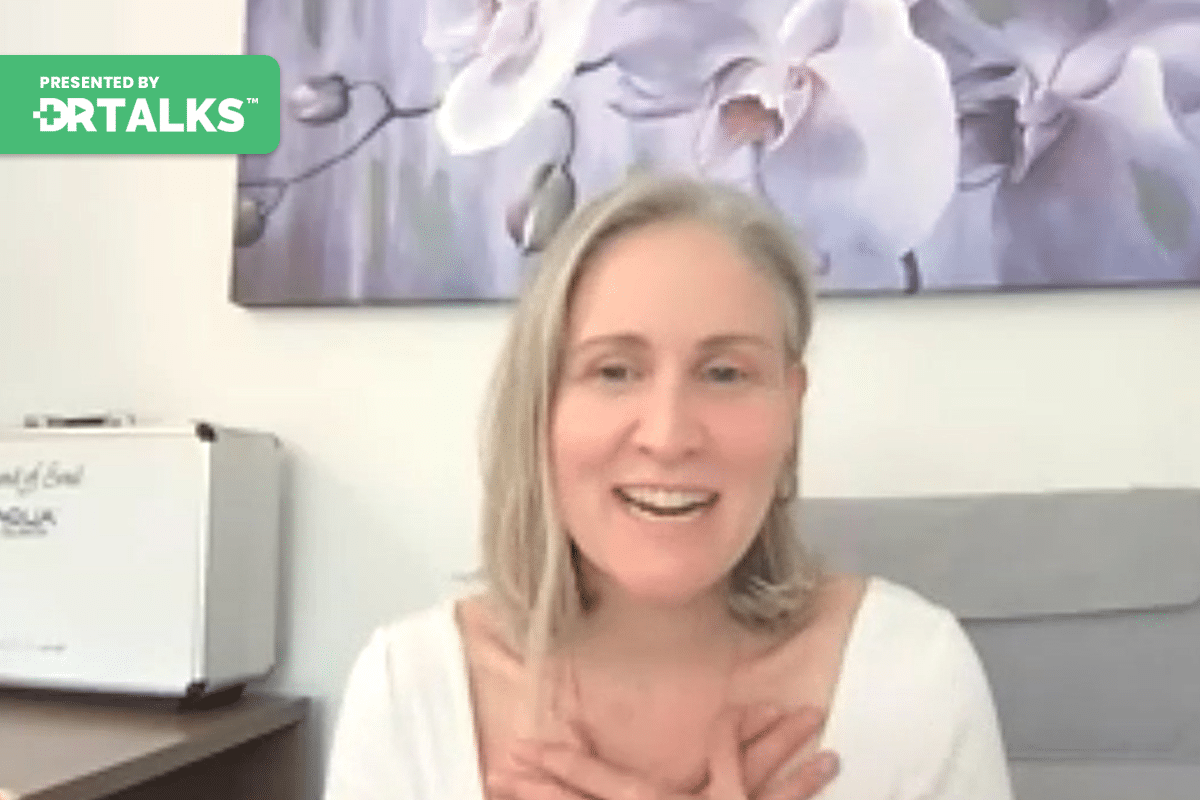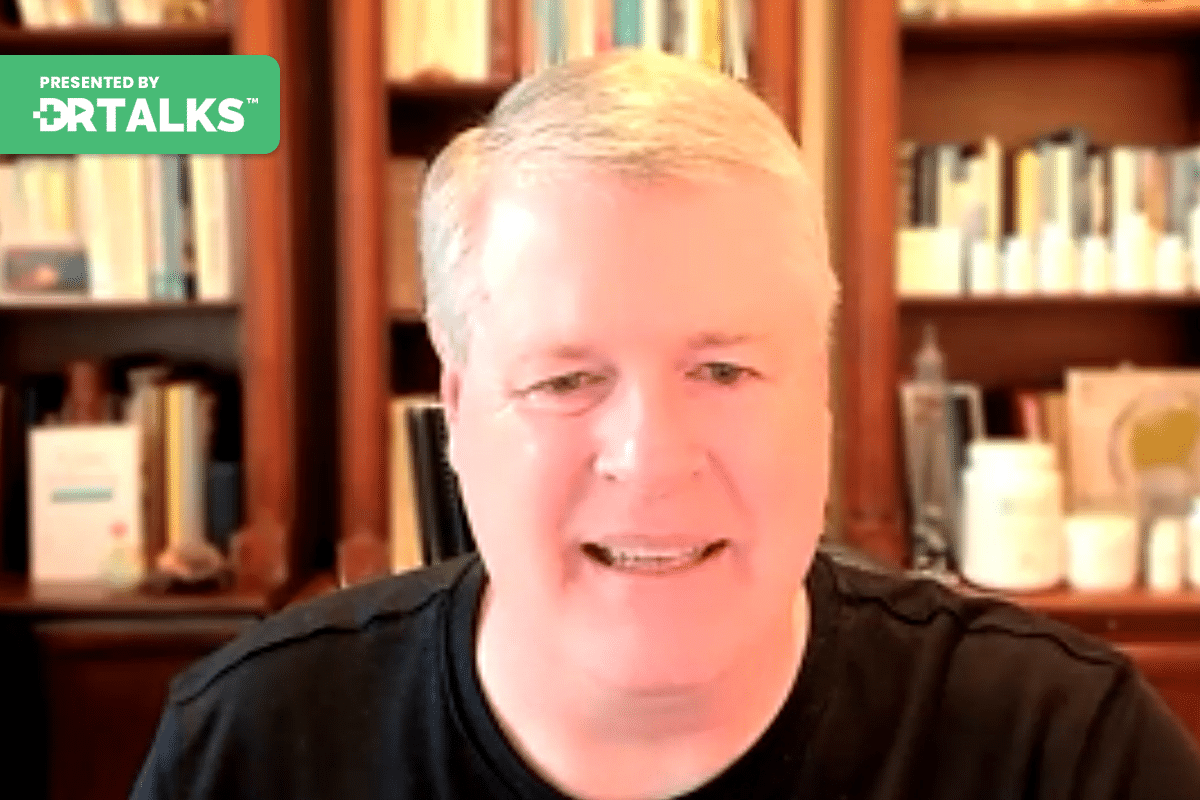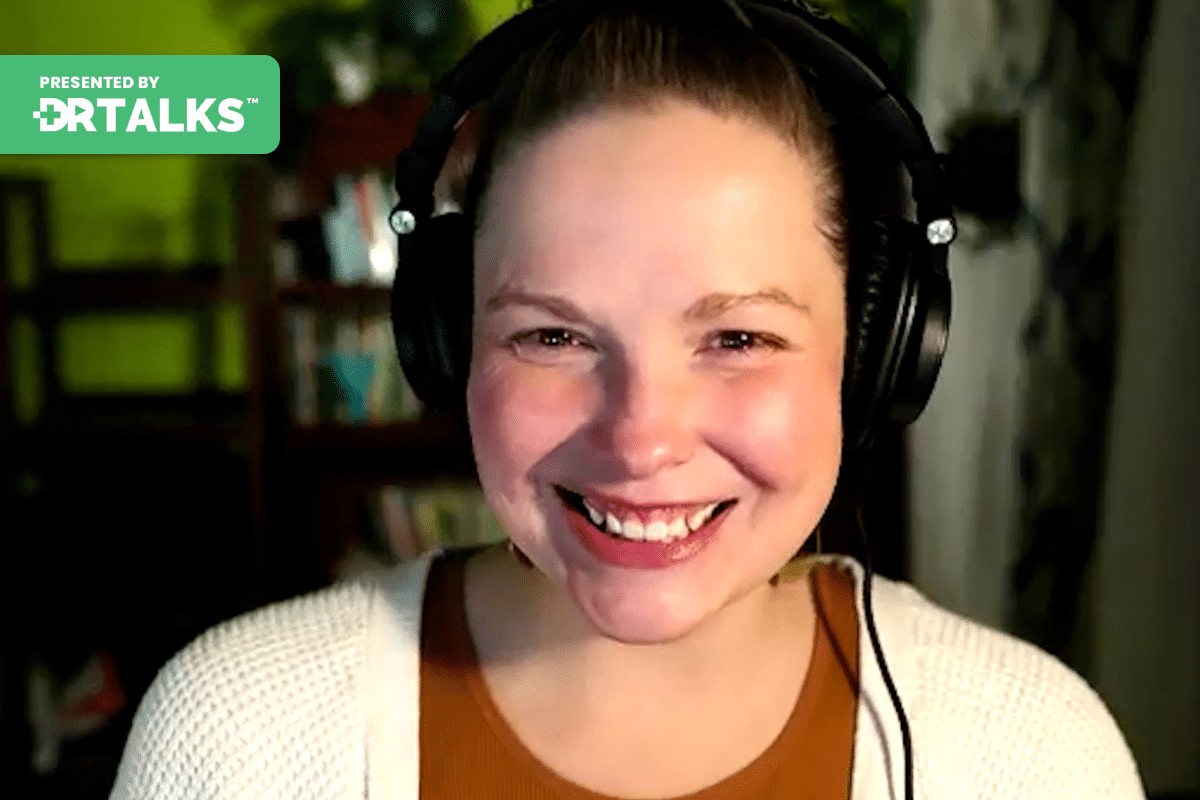Join the discussion below
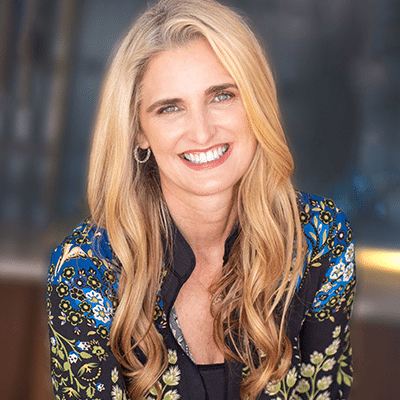
Dr. Ann Shippy is Board Certified in Internal Medicine and Certified in Functional Medicine. She operates a successful private practice in Austin, TX where she is known for her compassionate, attentive, and tireless approach to caring for her patients. She has gained a considerable reputation for successfully diagnosing and treating... Read More
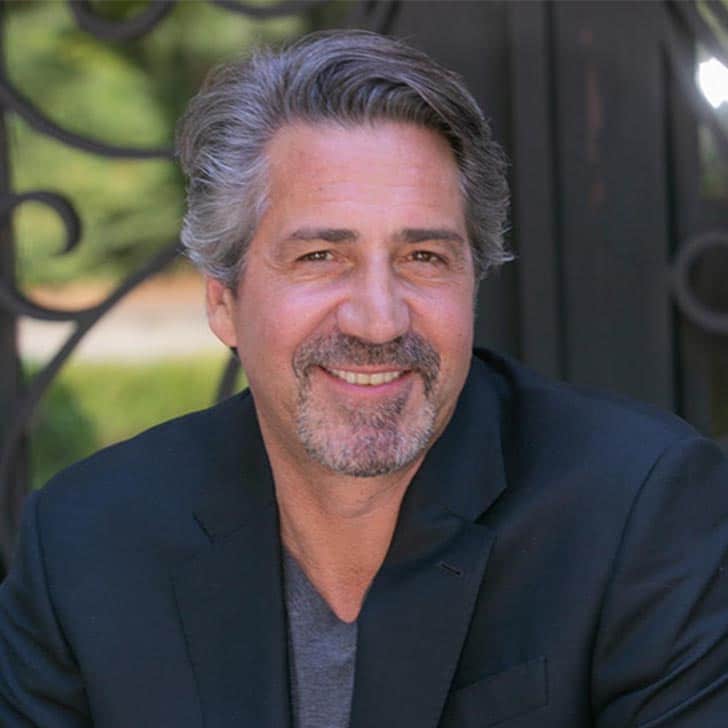
Andrew Salisbury is originally from Cambridge England. In 2006 he founded Corsidian in Mexico to provide contact centers software to the largest banks and call centers. Over 6 years it expanded to offices in 5 countries and installations in 13 countries and was the largest provider of call center software... Read More
- Understand the potential health risks associated with mold and mycotoxins in coffee and the importance of choosing mold-free options
- Discover the rigorous testing standards of Purity Coffee, ensuring that their beans are free from mold and mycotoxins
- Empower yourself as a consumer by learning to read labels, understanding sourcing methods, and making informed decisions when selecting coffee
- This video is part of the Mold, Mycotoxin, and Chronic Illness Summit
Related Topics
Acrylamide, Coffee, Food Safety Standards, Health Benefits, Mold, Mycotoxin-free, Mycotoxins, Organic, Pesticide-free, Roasting Protocol, Specialty GradeAnn Shippy, MD
Welcome to Mold, Mycotoxin, and Chronic Illness Summit. I’m your host, Dr. Ann Shippy. And today we get to talk to Andrew Salisbury, who is the founder and CEO of Purity Coffee. So thank you so much for joining us.
Andrew Salisbury
Thanks for inviting me.
Ann Shippy, MD
I think a lot of people don’t realize that coffee is such a big risk for really causing a lot of toxicity in their bodies. So let’s start out by just explaining that. Why? Why are mycotoxins in coffee?
Andrew Salisbury
I think the main thing to remember is that the mycotoxins will mold, which then can turn into mycotoxins because the mycotoxins are eating the mold. Again, developing hot climates. So, you know, the World Health Organization talks about the sort of products like grains and weeds that could develop Mycotoxins. Coffee is also part of that category, and they’re typically grown in countries that are hot and humid. And any time it’s hot and humid, you’re going to develop potentially mold. And if you can develop mold then you could develop mycotoxins. So I think we all have to be very conscious along all the steps of the journey to make sure that mold never develops in the coffee so that it never turns into mycotoxins that obviously would be bad for people’s health. So that’s probably the main reason.
Ann Shippy, MD
But I’m just so curious, like what kind of sets have to happen to make sure that the coffee is safe?
Andrew Salisbury
Well, we sort of approach this a little bit differently than most other coffee companies. I mean, we see coffee as a healthy food. And we think that you know, people have.
Ann Shippy, MD
It is kind of right because there are so many studies showing that coffee is helpful.
Andrew Salisbury
Absolutely. Absolutely. And I’d be happy to tell you a little bit about our story in the beginning and how we got started. But yeah, that’s exactly it. It’s incredibly good for you. A lot of health benefits that are associated with coffee. And so, you know, one of the real issues here is that we have to focus on all of those things that are likely to impact health. And so our position is that one of the many things that could impact health is obviously the development of mycotoxins in coffee. There are lots of other things we look at as well. We look at, you know, we want to make sure that our coffee is organic, it’s pesticide-free, that it’s, looking for pesticide residue. We want to make sure it’s specialty grade so none of the defects that can cause health issues and actually cause toxins to develop in the roaster are present. So we pretty much make every decision based on health. And I think that’s a perspective as a company.
Ann Shippy, MD
Well, that’s so good to know. So let’s dig into your story. I’m really curious how you decided coffee was important and what brought you to this point.
Andrew Salisbury
It’s sort of a funny journey, and my background has not been in coffee. It’s been in software but basically, I sold that company. I took a year off with my wife and during that time, probably a lot of high-stress things were going on. But she started to develop what we were, we never really understood exactly what it was, but it was low energy. The result was low energy. And like most of us, she was sort of caffeinated with coffee every morning. And I over caffeinated and I’m English and a tea drinker. I was a tea drinker. And so the argument was, you know, you have to give up your coffee. I’ve been reading about it. There are a lot of health experts that are trying to get you to reduce your coffee intake or give up on coffee. And, you know, naturally, she was very resistant. She said, okay, give me evidence. You need to show me some evidence of this. So it started doing basic searches on the Internet. And then I was lucky enough to meet two professors from the Institute of Coffee Studies at Vanderbilt, and they gave me this long shopping list of just the health benefits of coffee. Everything from the health benefits for liver reversal or reduction of risk of type two diabetes, and heart disease. And that it’s the number one antioxidant in the American diet. And so that sort of got me curious. Obviously, my wife won the arguments.
Ann Shippy, MD
It’s pretty amazing that you go to the experts at Vanderbilt to get your answer to convince your wife. That just tells us a little something about you.
Andrew Salisbury
It’s either amazing or shallow.
Ann Shippy, MD
I mean, I think you want to go to the absolute experts to get your information. And the fact that you could do that is quite impressive.
Andrew Salisbury
But it really got me so curious because, you know, this could have stopped right there. And then I asked them, okay, fantastic. Who’s making every decision based on health? What brand should I buy for my wife? And they could say, look, we can tell you exactly what you should look for in coffee, but we can’t tell you anybody who’s doing it. And it just struck me as very funny that something that, you know, 164 million Americans got up this morning and drank a cup of coffee. And given that there’s not a focus on the health benefits of this, you know, incredible product and that we’re not making every decision based on health. And so that’s why I started to think, well, what would happen if we made every decision based on health? What would we end up with? Would we end up with something that was $200 a pound and tastes like ditch water, you know? Yeah. And so that’s sort of when we started on that journey and they introduced me, these professors introduced me to Professor Adriana Farrar from the University of Brazil in Rio, and she’s one of the leading health experts on Coffee and health. She consults with the World Health Organization, and it started with maybe a two-month project and wrapped into about 18 months at the end, where I asked what would happen if we made every decision based on health. You know, what would it look like and what decisions would we make?
And so we started on every step of that journey. And obviously, mold and mycotoxins became a big part of that or a part of it. I wouldn’t say a big part but it was. The nice thing about having a North Star, which is every decision based on health, is that a lot of decisions are very easy. Nobody was telling us that mold or mycotoxins in coffee was a good thing. So it was one of these things that we could immediately say, okay, we need to make sure that it’s tested for and we avoid those contaminants in the coffee. And that’s sort of how we got started. Just 18 months later, we launched in 2017 with our first coffee and then, you know, it was really well received by, interestingly enough, a lot of people who had health concerns. So we tend to gravitate towards, sort of, two areas of the spectrum. People who are very health conscious and this is just one part that they want to be congruent with. They’re taking supplements, they’re eating organic, they’re doing very health-conscious things. And then the other category and the other side of the barbell is people who’ve got health concerns that coffee can genuinely help with.
Ann Shippy, MD
Okay, let’s keep on this path of like with this premise, you know, health is first. Like, what does it actually take to make sure that the coffee meets the standards that you’ve set?
Andrew Salisbury
It starts with, well, there’s a lot of things in here. The first thing and again, some of these decisions, if you think of this, is Northstar, they’re very easy decisions. So should it be organic or should it have pesticides? Nobody’s arguing that it should have pesticides, they are just saying it’s cheaper to produce if it has pesticides. And we weren’t going to use that as a rule. So the coffee had to be organic because coffee is one of the most heavily treated crops on the planet and is also treated in countries that don’t have the same level of oversight that the U.S. has. So, for instance, endosulfan, glyphosate, and some of those products that are banned in the U.S. are used in these countries and on these farms. So it needed to be organic. We also needed a test for pesticide residues because we needed to be sure that even though it was certified organic, there were basically some pests that could actually wipe out the entire harvest of that particular crop of coffee. So the farmers often I wouldn’t say often the farmers are tempted if they’re organically certified to cheat, if they’ve got, you know, let’s say coffee rust or berry beetle. So there’s a lot of focus on making sure, you know, trust but verify. So organic is one step that needs to be mold and mycotoxin toxin-free. And so there’s testing along that side. That means that along the stage of coffee, there are a lot of places where moisture develops on the coffee and there are a lot of shortcuts with coffee where people choose to take because as a commodity and commodity pricing, if they can reduce the cost, they make more, more margin. So those shortcuts are taken. So they’re probably the primary area of mold and mycotoxins that we look at is that coffee needs to be treated like a food product, food safety standards, the difference of our coffee that may maybe other fruit where you could pick a banana and it would ripen in transit. You pick a coffee cherry and it will start to mold or start to rot almost immediately. So the way that is processed, yeah, is very important.
Things like the roasting protocol are very important. You can create toxins in the way that the coffee is roasted and handled. So without, you know, perhaps going into too much detail for this audience, in the early stages of roasting, you get a thing called acrylamide, which is obviously very bad for you, is from the Maillard reaction. And in the later stages of roasting you have, which is for many burnt foods, polycyclic aromatic hydrocarbon PAHS, and that’s also carcinogenic. So creating the right roast curve. But probably the one thing that makes the most difference is that the good stuff in coffee are the CGAS, the chlorogenic acid. So making every decision based on health means that we want more of the good stuff and less of the bad stuff. So it’s testing for the bad stuff and making sure that we don’t have that in that coffee to mold mycotoxins pesticide residue. We’re not creating any negative compounds in the roast. But at the same time, we’re also buying and looking for coffee that has the most amount of CGAS, the most amount of antioxidants and we want to maintain those antioxidants in the roast. And that’s just.
Ann Shippy, MD
Who knew coffee was so complicated?
Andrew Salisbury
Can be. I mean, honestly, it was a little bit like drinking from a firehose, and initially, when we started looking at this every step created its own challenges that typically the coffee industry didn’t have to look at. Because if your goal is to turn a green coffee bean brown and make it taste nice, that’s a little bit easier than making it focused on health, which means avoiding that bad stuff and getting more of the good stuff, the more of the CGAS and there’s a lot of depth that goes into that, particularly on the farming side, like what we do a lot of work on the soil and that sort of thing to make sure that it creates an environment which is very good for, for the coffee in the CGAS.
Ann Shippy, MD
That’s so interesting because I think a lot of times about new farming being the things to actually grow good crops or a lot of the same things it takes to have a healthy body. Yeah, so that’s interesting to hear how important the soil is. Yeah. So it sounds like you’re really partnering with the farmers to make sure that there’s a good foundation, a good place to start.
Andrew Salisbury
Yeah, we noticed something within about the first two years of our business, which is that we would lab test coffee from around the world, and we would look for the coffee that was highest in antioxidants. But then we started to notice that the coffee that was grown in its natural way, in the natural environment. So we would look for things like bird-friendly, Smithsonian bird-friendly, hand-picked, hand-selected. All of those were indicators that the coffee was grown in a natural environment and were likely to be higher in CGAS. And so that’s why about a year and a half ago, we invested in our first farm. So we could experiments on the soil level and we can actually do some things to improve the quality even from a very good baseline.
Ann Shippy, MD
That’s really fascinating. I love that you’re really truly optimizing. Yeah. Not just seeing like, okay, well what’s the best out there? But now you’re taking it a step further and creating the best.
Andrew Salisbury
I think the challenge there is that a lot of coffee farmers are not necessarily motivated to look for coffee for health because nobody’s paying for coffee for health. So because of that reason, because they’re being paid based on commodity pricing, they don’t do the things that they’re aware of that they could do to improve the health benefits of the coffee. So what we’ve done is we partnered with great farms that invested in our own farm so we could make those decisions and we finance and actually provide that extra income for the farmers to make those sort of investments in the farm, which are good for the crop, like things like biochar, biodigesters. All of this is basically the rule is honestly that coffee that is good for your health is also really good for the environment. So I mean there’s no problem.
Ann Shippy, MD
That’s really powerful.
Andrew Salisbury
Yeah, I think so. Yeah. That’s the next wave, you know. It’s the next, I think people, as they start to recognize that there’s a difference in coffee, they’ll start to ask for coffee that is good for their health and they’ll look for certain things that indicate that. And that’s going to be the next direction that we want to focus on.
Ann Shippy, MD
So you probably have a lot of reports coming in from people who purchased your coffee. What kind of things are you hearing from them?
Andrew Salisbury
Yeah, that was a little bit of the law of unintended consequences. Like, you know, when we first launched, we didn’t know whether this would be like fish oil, that people would say, “Oh, I trust this brand, and they’re doing everything that I care about, but I really can’t tell the difference in my body.” What happened was that people actually could tell the difference in their bodies. So we started to get testimonials through people who either couldn’t drink coffee or had things like mast cell activation syndrome, or if they had allergies to various things, they couldn’t drink coffee, but they could drink our coffee. So that was a real eye-opener for us.
Ann Shippy, MD
Yeah, it makes a lot of sense to me because we know that these toxins really disrupt the gut and disrupting the immune system and even locally, but then getting absorbed into the body systemically and poison our mitochondria and all kinds of things. So with the possibility of coffee being actually a pretty high source of mycotoxins that people are putting in their body every day, usually it’s, hey, look at that. You’re getting such positive reports.
Andrew Salisbury
Yeah, I mean, to date I think we have 34,000 testimonials on our sites. It’s a little crazy. I still look, I read, I read every testimonial.
Ann Shippy, MD
I got goosebumps.
Andrew Salisbury
What’s that? Yeah, it’s crazy.
Ann Shippy, MD
34,000? I mean, to take the time to write a testimonial. It’s huge.
Andrew Salisbury
And some of these testimonials, two paragraphs long, they’re very detailed and honestly, the advice and the feedback we get from our customers is incredibly valuable for us in terms of what people care about and also the results the people are seeing. So it gives everybody in the company motivation to keep on, you know, doing better.
Ann Shippy, MD
And even passing that down to the farmers, to the growers like that’s got to make them feel really great too, that extra effort to make sure that the berries aren’t molding instantaneously and that they’re not cheating on and using the pesticides. And yeah, again, some things that’s got to really enhance the partnerships.
Andrew Salisbury
Yeah, absolutely. I mean, it has to be a full value chain all the way along. We have to make sure that the farmers are taken care of because they’re doing an incredibly good job. Our farmers are doing an incredibly good job in terms of focusing on those things that can impact the coffee as a fruit and then turning it into the processing and our roasters. And it’s a team effort. It’s a real orchestra in terms of all the way along the supply chain, how to maximize, you know, the health benefits.
Ann Shippy, MD
I still love that it all started with your wanting your wife to have a healthy coffee. Yes.
Andrew Salisbury
Yes. She drinks. She drinks as much coffee as she likes now and she’s very happy.
Ann Shippy, MD
And it’s endorsed.
Andrew Salisbury
Yeah, that’s right. That’s right. Exactly.
Ann Shippy, MD
That’s great. So what do we need to look for? Like, how do we know that we’re, you know when we’re buying a coffee that actually meets these kinds of standards?
Andrew Salisbury
I think that’s a really important point. So coffee is one of the most studied foods on the planet. There are over 19,000 studies done on coffee and health. So, I mean, incredibly well-studied food and so the health benefits are pretty clear. But one of the issues is that the studies are all done on coffee in general. So in other words, it’s not like pure coffee has come out with this panacea and all coffee is bad and Purity Coffee is great. Coffee is generally very, very good for you. And what we think we can do is we can make it even better. So there are certain things and this is what, you know, I sort of think of it as a list I would give my wife if she’s traveling and she wants to get a cup of coffee and she can’t, you know, get purity. What does she look for in a coffee? And these are the things that I think that really matter. The first step is that the coffee needs to be an organic, heavily treated crop. It’s really important that it’s organic. The second one is that it needs to be tested for mold and mycotoxins. It’s a very easy test. In fact, this is one of my biggest frustrations and I know that this is a very important issue mold and mycotoxins, it’s an important issue with oxytocin and certain things that can really impact our consumers. But the test itself and the actual decision is one of the easiest decisions we’ve ever had to make. A container of coffee costs about $200 to test that container by sampling it to make sure that it is mold or mycotoxins free. Everybody should be doing that. Every consumer should be asking for, I want to know that this coffee is mycotoxin-free, and go with coffee companies and importers that have that standard. So that’s really important. I think that it needs to be specially grade. So specially grade means the highest grade of coffee. The reason why it needs to be specially grade is because there are certain things inside the specially grade, that show that there’s an absence of these things. Like there’s an absence of moldy beans, there’s an absence of green beans, which are under-ripe beans, and there’s an absence of insect damage or chipped beans or broken beans.
The reason why all of this sort of matters is because when you put it in the roaster, it’ll have a direct impact on the health benefit of the coffee. So, for example, take a broken or cracked bean because the surface area is different on the bean, it’ll scorch at a different temperature. So what you’ll do is you’ll create PAHS in that particular bean. And so the cross-contamination means that you’re already affecting more of the coffee than you would like to. So specially grade is important. I would get a medium roast coffee as a standard, a medium roast coffee, too light you have high levels of acrylamide, and too dark you have higher levels of PAHS. Also what you want to care about is the antioxidants in the coffee so that the absence of bad stuff, very important presence of good stuff. That’s where the health benefits come from. So no company that we know of that is aware of the test for CGAS and announces the CGAS apart from us in the coffee. So you want to find a coffee that’s a medium roast. It’s more likely to have the most CGAS than a medium roast with the most antioxidants and less of the bad stuff on either shoulder.
Ann Shippy, MD
I had no idea that the level of roasting actually changed the quality of the coffee. This is brilliant.
Andrew Salisbury
The level of roasting is incredible. I mean, we can do everything right up to that point. We can get a fantastic coffee for you, but if it’s roasted in a poor way, then you’ll lose a lot of the antioxidants in the coffee or you’ll create some of the negative compounds. And the freshness of the coffee makes a big difference as well. So one of the issues with coffee is that it doesn’t have a sort of a shelf life where people say, oh, it’s a month old and we need to retire this coffee. It’s allowed to have a very long shelf life, and the lipids or the oils on the coffee can become rancid. So the Cafestol, and the Kawheol, which are the oils in the coffee become rancid. And so people have a lot of sensitivity to that. So the freshness of the coffee and the days of the roast are very important.
Ann Shippy, MD
There’s a lot more guidance on that. So are there things to actually know how fresh it is and what’s the best way to store it?
Andrew Salisbury
So my advice to my wife would be not to buy commercial coffee and to look for that specially great coffee, typically, you know, frequent your local coffee roaster is doing a good job, is getting good single-origin coffee in a lot of cases and is unlikely to then, you know, you want to look for the roast by date. We’ve had this dilemma inside of our company, which is the roast by or best by date because what we do is we nitrogen flush our bags, which means that there’s an inert gas inside of the bag and it’s fresh until you open the bag. Most coffee companies don’t do that. So for us, it doesn’t matter as much.
Ann Shippy, MD
Another good tip. So by putting the nitrogen in, you make it last longer. So the date may not mean so much.
Andrew Salisbury
It doesn’t stale. So it’ll degas, which is what you want the coffee to do, but it won’t stale because it’s not exposed to oxygen. And so because it’s not exposed to watch oxygen, there’s a thing called the rule of 15, which is not 100% accurate, but it’s close enough for a sort of like a guideline, Which is that green coffee is fresh for about 15 months, roasted coffee is fresh for 15 days after you’ve opened the bag. But ground coffee is fresh for 15 minutes because of the surface area. So that’s one of the reasons why we don’t sell ground coffee because our issue is that if you buy ground coffee, that first pot of coffee will be very fresh and high in antioxidants. The second part, whatever we do means that it’s starting to stale or stale at a very high level, and we’re losing the freshness of the lipids on the coffee.
Ann Shippy, MD
So buy small bags and roast them, quickly after you open them and break itself.
Andrew Salisbury
A good specialty coffee shop and just ask them when the coffee was roasted. So you want to get fresh coffee just like bread, fresh coffee that was recently roasted within about 15 days and preferably organic and, you know, specially grade.
Ann Shippy, MD
I’ve learned so much. I’m a tea drinker too, but this is enough to make me want to go start drinking some coffee.
Andrew Salisbury
Yeah and it’s really interesting. Watch how your body feels like. So I had to be a convert for coffee as well. And over time I started to recognize that some coffees made me feel great and other coffees made me feel awful. And so, you know, jitters, nervousness, that sort of thing.
Ann Shippy, MD
Yeah. The time that I usually drink coffee is when I’m at a conference and I have that just sitting and listening, consuming information and that definitely helps with my focus. But that’s exactly what I’ve observed. Sometimes I feel fine drinking it and other times it also. Good.
Andrew Salisbury
Yeah, it’s this little interplay between what’s good for you and what’s bad for you. So typically, if you have a, let’s say, a poor quality coffee, the caffeine gives you a lift. But the toxins in the coffee, after about an hour or so, you start to recognize it in your body. So if you feel jittery, nervous, have acid reflux, or any of the sorts of problems that sometimes people equate to coffee, it really should be equated to bad coffee. It’s not something that you should experience with a good cup of coffee.
Ann Shippy, MD
Well, now you’ve spoiled me. I’m going to have to travel with my own coffee.
Andrew Salisbury
Yes, I did do. Sure.
Ann Shippy, MD
So, any other tips that you want to share with listeners to help them navigate the coffee and health landscape?
Andrew Salisbury
I think, you know, your listeners are sort of like the canary in the mine. I mean, you have the sensitivity to some of the defects we don’t know today, honestly, what the problems are with coffee that cause the reactions that people have. We just make every decision based on health. So all of the things we talked about and we know that the end result is people feel a lot better drinking our coffee. But what’s interesting is if we could, as consumers drive behaviors in the coffee industry, it would only be healthy. I mean, a rising tide, everyone is going to benefit from us asking for higher quality standards and it has to start with you talking to your roaster or where you buy your coffee from demanding higher quality coffee, and also the roaster will then talk to the importer to say we want to have testing for mold or mycotoxins. It’s not expensive. We need to know that is free from mold and mycotoxins. And that’s just a very basic step I think all of us can do.
Ann Shippy, MD
And let that driving driving change all the way back to the producers.
Andrew Salisbury
Yeah, that’s right. And then the farmers also will understand that it’s important because the importers of the coffee will say, we have to meet these requirements and we’re going to do a sample on the source of this particular coffee. If it tests high in mold or mycotoxins, we’re going to reject the order. The really interesting thing is like some of the mycotoxins like ochratoxin A in Europe, they have standards for that. In Asia, they have standards for that. In the US, the FDA has no standards for ochratoxin A in coffee, which means that the coffee that’s likely to not reach the standards in Europe and Asia will reach the no standards of the U.S..
Ann Shippy, MD
That’s pretty disappointing.
Andrew Salisbury
Yeah. Yeah. And you know, there’s the concept of food as medicine. I mean, we feel like, you know, that’s our philosophy as a company is that, you know, we want to do everything to recognize that this is incredibly good for you plant medicine, that we should focus on the health benefits.
Ann Shippy, MD
Well said. Well, so how do people find purity?
Andrew Salisbury
So I think we’ve got a code for people. It’s so if you go to puritycoffee.com/moldsummit the code is MOLD23 and it’s 40% off the first purchase. So that’s a pretty good way of testing out and personal guarantee. If it doesn’t work for you we’ll give you a full refund as well. I mean we’re not, you know, everybody’s body is different and reacts in a different way. You know, give us a try. And if you have a coffee that works for you, keep on drinking it. It’s great, you know.
Ann Shippy, MD
Well, thank you so much. This is exciting to see an important industry changing.
Andrew Salisbury
Yeah, I hope so. I hope so. It’s the next level. We hope.
Ann Shippy, MD
It’s great. Thank you so much for joining us today.
Andrew Salisbury
Thank you. It was my pleasure.
Downloads

